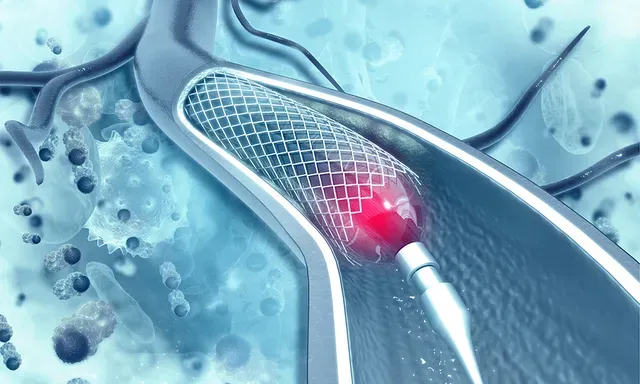Angioplasty and Stenting
When plaque buildup causes a coronary artery to become narrowed or blocked, your heart doesn’t receive as much oxygen-rich blood as it needs. Angioplasty and stenting help reopen the vital vessel so blood can flow freely. Vascular surgeons Danón Garrido, MD, Justin Manley, MD, and the experienced team at Advanced Vascular & Vein Associates in Flowood, Mississippi, perform these minimally invasive percutaneous coronary interventions (PCI) procedures on a regular basis. Call today or book an appointment online any time.

Angioplasty and Stenting Q & A
Angioplasty is a procedure designed to improve blood flow to a coronary artery that’s been narrowed or blocked by the buildup of plaque, a sticky substance consisting mostly of dietary fats and cholesterol. Arterial plaque buildup is a common effect of coronary artery disease (heart disease).
As a minimally invasive surgical treatment, angioplasty uses a tiny inflatable balloon catheter to gently open a narrowed coronary artery. Once the artery is expanded, a tiny mesh coil called a stent may be inserted to reinforce the vessel and keep it open.
Coronary angioplasty is also known as percutaneous transluminal coronary angioplasty (PTCA). A procedure that combines angioplasty with stenting called a percutaneous coronary intervention (PCI).
Your coronary arteries have one job: to deliver a continuous supply of nutrient- and oxygen-rich blood to your constantly beating heart muscle. Any disease or disorder that affects these vessels can have serious implications on your cardiovascular health.
As you get older, atherosclerosis may cause your coronary arteries to become harder and narrower, restricting blood flow to your heart and setting the stage for heart disease. This can lead to a type of chronic chest pain called angina, which is typically triggered by stress or physical activity.
While mild angina often responds well to medication, severe angina may require a more intensive intervention like angioplasty and stenting. PCI procedures are also used to address narrowed or blocked arteries coronary arteries before they lead to poor heart function (heart failure).
Using live X-ray imaging to guide the procedure, the team at Advanced Vascular & Vein Associates threads a thin tube called a catheter through the affected artery. Next, they inject contrast dye through the catheter to highlight the blockage.
Once they’ve zeroed in on the affected area, they insert a thin wire along the length of the catheter to deliver a tiny inflatable balloon to the blockage site. They gently inflate the balloon to widen the artery, squashing plaque deposits against the arterial wall in the process.
If a mesh stent is being used, it’s placed around the balloon prior to insertion. When the team inflates the balloon, the stent expands against the arterial walls. After they deflate the balloon for removal, the coil remains firmly in place, holding the artery open.
Although it’s most often used to treat coronary arteries, angioplasty — with or without stenting — can also be used to treat other common conditions that narrow or block blood vessels and interfere with blood flow. It’s a treatment option for:
- Peripheral artery disease (PAD), arterial narrowing in your arms or legs
- Carotid stenosis, the narrowing of the arteries that supply blood to your brain
- Dialysis access stenosis, or the narrowing of an AV fistula or graft
- Renal vascular hypertension, or high blood pressure caused by narrowed kidney arteries
To learn more about the angioplasty and stenting procedures at Advanced Vascular & Vein Associates, call the office or book an appointment online today.
